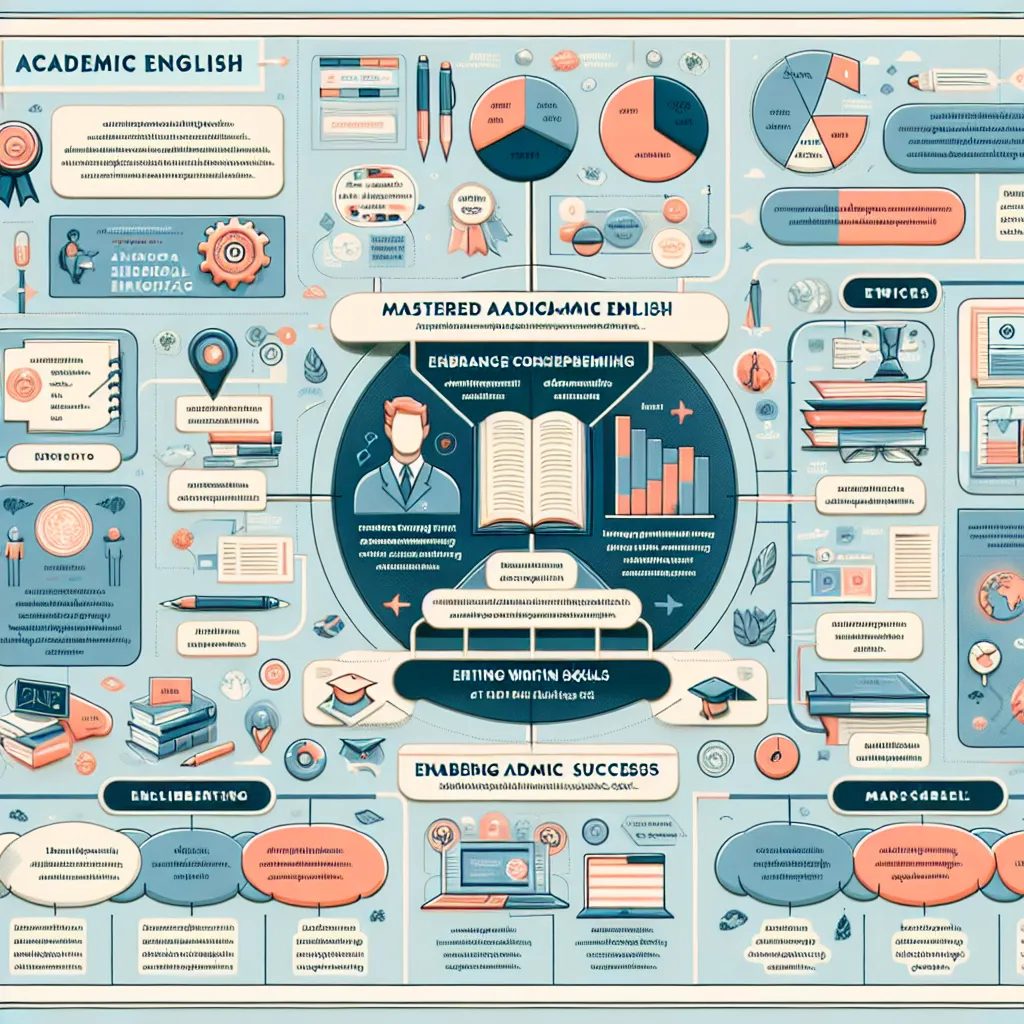Are you looking to enhance your academic English skills? Whether you’re a student preparing for international studies or a professional aiming to excel in an English-speaking academic environment, mastering academic English is crucial. This comprehensive guide will provide you with expert tips and strategies to elevate your academic English proficiency.
Understanding the Importance of Academic English
Academic English refers to the formal language used in educational settings, research papers, and scholarly publications. It differs from everyday English in its vocabulary, structure, and tone. Mastering academic English is essential for several reasons:
- It improves your ability to comprehend complex academic texts.
- It enhances your writing skills for essays, research papers, and theses.
- It boosts your confidence in participating in academic discussions and presentations.
- It prepares you for success in international academic environments.
 Importance of Academic English
Importance of Academic English
Key Strategies for Mastering Academic English
1. Expand Your Academic Vocabulary
One of the most crucial aspects of academic English is its specialized vocabulary. Here are some tips to enhance your academic lexicon:
- Create a personal academic word bank: Keep a list of new academic terms you encounter and review them regularly.
- Use academic word lists: Familiarize yourself with resources like the Academic Word List (AWL) by Averil Coxhead.
- Practice using synonyms: Replace common words with their more formal academic equivalents.
- Read extensively: Immerse yourself in academic journals, textbooks, and scholarly articles in your field of study.
2. Improve Your Grammar and Syntax
Academic English requires a high level of grammatical accuracy and complex sentence structures. To improve in this area:
- Study advanced grammar structures: Focus on complex sentences, passive voice, and conditional forms.
- Practice using transitional phrases: Learn to connect ideas smoothly using academic transitions.
- Analyze model texts: Examine well-written academic papers to understand their structure and language use.
- Seek feedback: Have your writing reviewed by peers or instructors to identify areas for improvement.
For more detailed guidance on improving your grammar for formal writing, check out our article on improving grammar for formal writing.
3. Develop Critical Reading Skills
Effective academic reading is a cornerstone of mastering academic English. Here’s how to enhance your critical reading abilities:
- Practice active reading: Take notes, highlight key points, and summarize main ideas as you read.
- Analyze argument structures: Identify thesis statements, supporting evidence, and conclusions in academic texts.
- Question the text: Develop a habit of critically evaluating the author’s claims and evidence.
- Improve reading speed: Use techniques like skimming and scanning to efficiently process academic texts.
4. Enhance Your Academic Writing Skills
Academic writing is a crucial skill that requires practice and refinement. To improve:
- Study academic writing conventions: Familiarize yourself with citation styles, referencing, and formatting requirements.
- Practice different types of academic writing: Essays, research papers, literature reviews, and reports.
- Focus on clarity and concision: Learn to express complex ideas clearly and concisely.
- Use writing prompts: Regular practice with academic writing prompts can significantly improve your skills. For ideas, visit our guide on how to practice English writing with prompts.
5. Hone Your Listening and Speaking Skills
Academic English isn’t just about reading and writing. Listening and speaking skills are equally important:
- Listen to academic lectures: Use resources like TED Talks or academic podcasts to improve your listening comprehension.
- Practice academic presentations: Prepare and deliver presentations on academic topics to enhance your speaking skills.
- Participate in academic discussions: Join study groups or online forums to practice academic discourse.
- Work on pronunciation: Focus on clear articulation and stress patterns in academic vocabulary.
 Academic English Skills
Academic English Skills
6. Utilize Technology and Resources
Take advantage of the numerous digital tools and resources available:
- Use academic writing software: Tools like Grammarly or ProWritingAid can help improve your writing.
- Explore online courses: Platforms like Coursera and edX offer courses specifically on academic English.
- Leverage language learning apps: Apps like Quizlet can help with vocabulary acquisition.
- Access online academic journals: Familiarize yourself with the language and structure of published academic works.
Common Pitfalls to Avoid
When mastering academic English, be aware of these common mistakes:
- Overuse of passive voice: While passive voice has its place in academic writing, overusing it can make your writing unclear.
- Informal language: Avoid colloquialisms, contractions, and overly casual expressions in academic contexts.
- Lack of cohesion: Ensure your ideas flow logically and are well-connected throughout your writing.
- Plagiarism: Always properly cite your sources and paraphrase effectively.
- Neglecting revision: Always proofread and revise your work for clarity, coherence, and correctness.
For more tips on improving your English syntax skills, which is crucial for avoiding these pitfalls, visit our guide on how to improve English syntax skills.
Next Steps in Your Academic English Journey
Mastering academic English is an ongoing process. Here are some steps to continue your progress:
- Set specific goals: Identify areas where you need improvement and set measurable objectives.
- Create a study schedule: Dedicate regular time to practicing academic English skills.
- Seek opportunities for immersion: Attend academic conferences, workshops, or lectures in English.
- Find a language exchange partner: Practice academic discussions with native speakers or other learners.
- Keep a reflective journal: Document your progress and challenges in academic English learning.
Conclusion
Mastering academic English is a challenging but rewarding journey. By focusing on expanding your vocabulary, improving your grammar, enhancing your reading and writing skills, and practicing your listening and speaking abilities, you can significantly improve your academic English proficiency. Remember, consistency and practice are key. Utilize the resources and strategies outlined in this guide, and don’t hesitate to seek additional support when needed.
We encourage you to share your experiences and tips for mastering academic English in the comments below. For more language learning resources, explore our other articles on improving specific aspects of English, such as mastering the use of articles and improving your use of adjectives and adverbs.




